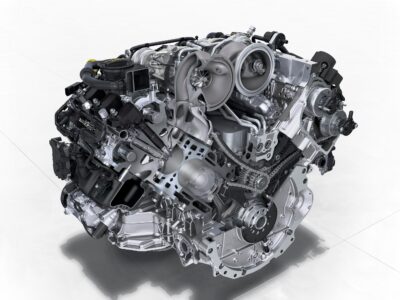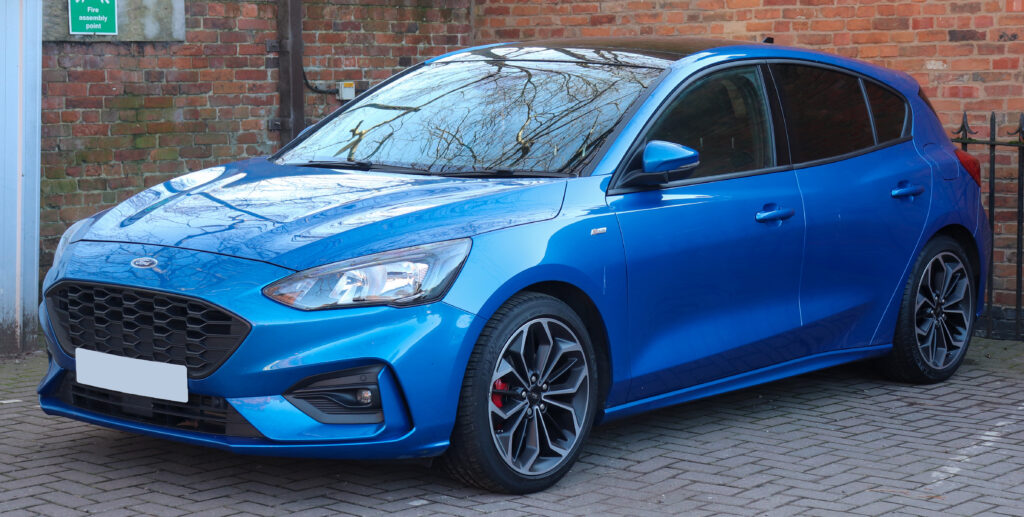
What Ford Focus Do I Have? A Complete Guide to Identifying Your Model

Owning a Ford Focus is great — it's reliable, fun to drive, and comes in more trims and generations than most compact cars out there. But sometimes, we stop and wonder: “What Ford Focus do I actually have?” Whether you bought it used, inherited it, or simply lost track of its version, this guide will help you figure it out in minutes.
Let’s roll up our sleeves and decode your car’s identity — from model years and trims to hidden VIN secrets and styling clues that reveal which Focus you drive.
- Understanding the Ford Focus Lineup
- Step-by-Step — How to Know What Ford Focus You Have
- Identifying Features by Year and Design
- Engine and Transmission Clues
- Using Technology to Identify Your Ford Focus
- Visual Cues — Exterior and Interior Details
- Regional Differences — U.S. vs. U.K. Models
- Fun Fact — How the Focus Changed Over Time
- Common Confusions — Don’t Mix These Up
- Why Knowing Your Focus Model Matters
- Final Thoughts — The Identity of Your Ford Focus
- FAQs About Ford Focus Identification
Understanding the Ford Focus Lineup
The Ford Focus has evolved through four main generations since its debut in 1998. Each brought new looks, engines, and technologies — and these are the first clues to identifying which model you own.
The Four Generations at a Glance
Here’s a quick cheat sheet:
| Generation | Model Years | Key Features |
|---|---|---|
| 1st Gen | 1998–2007 | Angular headlights, compact shape, early hatchbacks |
| 2nd Gen | 2008–2011 | Smoother body, sharper grille, modern interior |
| 3rd Gen | 2012–2018 | Global redesign, sleeker look, more tech |
| 4th Gen | 2019–2025 | Wider stance, digital dashboard, EcoBoost focus |
If your car fits one of these timeframes, you’re already halfway there.
Step-by-Step — How to Know What Ford Focus You Have
Now, let’s break it down into practical steps you can follow right now, even from your driveway.
Step 1 — Check Your VIN (Vehicle Identification Number)
The VIN is your car’s fingerprint — a unique 17-character code that tells everything about your Focus.
Where to Find the VIN
- On the driver’s side dashboard, visible through the windshield
- Inside the driver’s door frame on a silver label
- On your registration, insurance, or title documents
How to Decode It
- 1st–3rd characters: Manufacturer and country (e.g., 1FA = Ford USA)
- 4th–8th: Vehicle type, body, and engine
- 10th character: Model year (e.g., C = 2012, F = 2015)
- 11th: Assembly plant
- 12th–17th: Serial number
Pro tip: You can enter your VIN on Ford’s official site to get exact details like model year, engine, and trim.
Step 2 — Identify the Model Year
The easiest way to narrow down your Focus is by the model year. You’ll find it on the VIN (10th digit) or on the manufacturer label inside your door.
Common Examples
| VIN 10th Digit | Model Year |
|---|---|
| A | 2010 |
| B | 2011 |
| C | 2012 |
| D | 2013 |
| E | 2014 |
| F | 2015 |
| G | 2016 |
| H | 2017 |
| J | 2018 |
| K | 2019 |
Once you know the year, you can match your car to its generation and trim style.
Step 3 — Look at the Body Style
The Ford Focus has come in several body types over the years. Just looking at your car’s shape reveals a lot.
You may be interested in reading Can Ford Focus Tow a Trailer? The Ultimate Towing Guide
Can Ford Focus Tow a Trailer? The Ultimate Towing GuideHMain Body Styles
- Sedan: Four-door, longer trunk — common in U.S. models.
- Hatchback: Shorter rear, sporty look, popular in Europe.
- Wagon (Estate): Longer roof, more cargo space — rare in the U.S.
- Coupe (2008–2010): Two-door version of the Focus.
Quick Clues
- If it’s a hatchback with slanted taillights, likely 2012+.
- If it’s a boxy sedan, it’s probably pre-2012.
- If it has LED daytime lights and touchscreen infotainment, it’s likely 2015 or newer.
Step 4 — Determine Your Trim Level
Trim levels define your car’s personality — from budget-friendly to performance-tuned. Ford Focus trims include S, SE, SEL, Titanium, ST, and RS.
Key Trim Identifiers
| Trim | Characteristics |
|---|---|
| S | Base model, steel wheels, simple interior |
| SE | Mid-range, alloy wheels, optional tech |
| SEL | Premium trim, better materials, sunroof |
| Titanium | Top luxury trim, leather, heated seats |
| ST | Hot hatch, turbocharged, sporty design |
| RS | Rally-inspired, AWD, aggressive styling |
You can usually find your trim badge on the rear trunk or hatch, but if it’s missing, your VIN or window sticker will reveal it.
Identifying Features by Year and Design
Each Ford Focus generation has distinctive design touches. Here’s how to spot them at a glance.
1st Generation (1998–2007)
- Sharp, triangular headlights
- Compact, angular shape
- Simple interior
- Base engines around 2.0L
If your Focus looks small and boxy, you likely own one of these early models.
2nd Generation (2008–2011)
- Wider body, sleeker nose
- More chrome accents
- Optional SYNC infotainment system
- Coupe version introduced
Think of this gen as “the bridge” between old-school and modern Focus designs.
3rd Generation (2012–2018)
- Full redesign — global platform
- Aerodynamic front grille
- Touchscreen console on higher trims
- ST (sport) and Electric variants appear
If your car feels tech-savvy and globally inspired, this is probably your generation.
4th Generation (2019–2025)
- Wider stance and aggressive front
- Digital dashboard and touchscreen standard
- Efficient EcoBoost engines
- Driver-assist features like lane keep assist, blind spot warning
If it feels futuristic, sleek, and connected — you’re driving the newest era of the Focus.
Engine and Transmission Clues
Engines can also hint at your Focus type.
Common Engine Types
- 2.0L Duratec: Found in early 2000s models
- 1.6L Ti-VCT: Used in mid-range trims (2008–2011)
- 1.0L EcoBoost: Introduced in 2015 — small but mighty
- 2.0L EcoBoost: Used in Focus ST (2013–2018)
- 2.3L EcoBoost: Found in Focus RS (2016–2018)
Transmission Differences
- Manual: Found in base and performance trims
- Powershift Dual-Clutch: Common in 2012–2016 models (some issues reported)
- Automatic 6-speed: Found in newer generations (2019+)
Using Technology to Identify Your Ford Focus
If you’re still unsure, modern tools can help you pinpoint your exact Focus.
Ford Owner Website
Go to Ford.com → “Vehicle Lookup” → Enter your VIN.
You’ll instantly see your model, engine type, trim, and features.
CarFax or AutoCheck Report
If you bought your Focus used, these reports can reveal its full history — including its model year, trim, and manufacturing plant.
You may be interested in reading Can Ford Focus Tow a Trailer? The Ultimate Towing Guide
Can Ford Focus Tow a Trailer? The Ultimate Towing Guide How Many Ford Focus Models Are There? A Complete Guide Through Every Generation
How Many Ford Focus Models Are There? A Complete Guide Through Every GenerationFordPass App
If you have a newer Focus (2019+), connect through FordPass — the app displays your car’s model, trim, and service data.
Visual Cues — Exterior and Interior Details
You can identify your Focus by simply observing its styling.
Exterior Clues
- 2012+ Focus: Rounded front with a hexagonal grille
- 2015+ Titanium: Chrome accents, fog lights
- ST/RS models: Dual exhausts, sport bumpers, large spoilers
- 2019+ Focus: Wider LED headlights, sculpted sides
Interior Cues
- Pre-2012: Basic dashboard, analog gauges
- 2012–2018: SYNC 2/3 infotainment, center touchscreen
- 2019+ Focus: Digital cluster, wireless charging, minimalist dash
Regional Differences — U.S. vs. U.K. Models
Not all Focus models are built alike. Depending on where you live, your Focus might differ in design and specs.
U.S. Models
- Focus ST and RS are performance icons
- More sedans than hatchbacks
- Built in Michigan (earlier) and later imported
U.K. and Europe Models
- Hatchbacks dominate
- Diesel engines more common
- Variants like Zetec, Ghia, and ST-Line
If your Focus has diesel badges or a “Zetec” trim, it’s a European version.
Fun Fact — How the Focus Changed Over Time
The Ford Focus began as an affordable commuter but evolved into a symbol of versatility. From eco-efficient hatchbacks to rally-bred monsters like the Focus RS, each generation redefined what a compact car could be.
Common Confusions — Don’t Mix These Up
Focus vs. Focus ST
- ST has a turbo engine, larger wheels, and sporty seats.
- Regular Focus has softer suspension and better fuel economy.
Focus RS vs. ST
- RS = All-wheel drive, 350 hp, aggressive styling.
- ST = Front-wheel drive, around 250 hp.
Focus SE vs. Titanium
- SE = mid-level comfort
- Titanium = luxury touches and tech features
Why Knowing Your Focus Model Matters
Understanding your exact Focus model helps you:
- Order the correct parts
- Follow the right maintenance schedule
- Check for recalls or updates
- Know your car’s value
When selling or servicing your vehicle, these details can save you time, money, and confusion.
Final Thoughts — The Identity of Your Ford Focus
So, what Ford Focus do you have?
By decoding your VIN, checking your trim, and comparing body styles, you can confidently name your exact model. Whether it’s a humble Focus S or a roaring Focus RS, you now understand what sets your car apart — and that’s the beauty of the Focus lineup: one name, countless personalities.
FAQs About Ford Focus Identification
1. How can I tell the year of my Ford Focus?
Check the 10th digit of your VIN — it represents the model year. For instance, “F” means 2015.
2. Where can I find my Focus trim level?
Look for a badge on the rear trunk, your window sticker, or VIN lookup on Ford’s website.
3. Are Focus ST and RS models rare?
Yes — especially the RS (2016–2018). Both are performance editions that are no longer produced in most regions.
You may be interested in reading Can Ford Focus Tow a Trailer? The Ultimate Towing Guide
Can Ford Focus Tow a Trailer? The Ultimate Towing Guide How Many Ford Focus Models Are There? A Complete Guide Through Every Generation
How Many Ford Focus Models Are There? A Complete Guide Through Every Generation Which Ford Focus Is the Fastest? The Ultimate Guide to Speed, Style, and Power
Which Ford Focus Is the Fastest? The Ultimate Guide to Speed, Style, and Power4. Can I tell my Focus engine type without the VIN?
Yes. Open the hood — engine size is often printed on the engine cover (e.g., “EcoBoost 1.0L”).
5. Is the Ford Focus still in production?
In the U.S., Ford stopped production after 2018, but the European Focus continues strong through 2025.
If you want to know other articles similar to What Ford Focus Do I Have? A Complete Guide to Identifying Your Model you can visit the category Blog.
Leave a Reply






More content of your interest